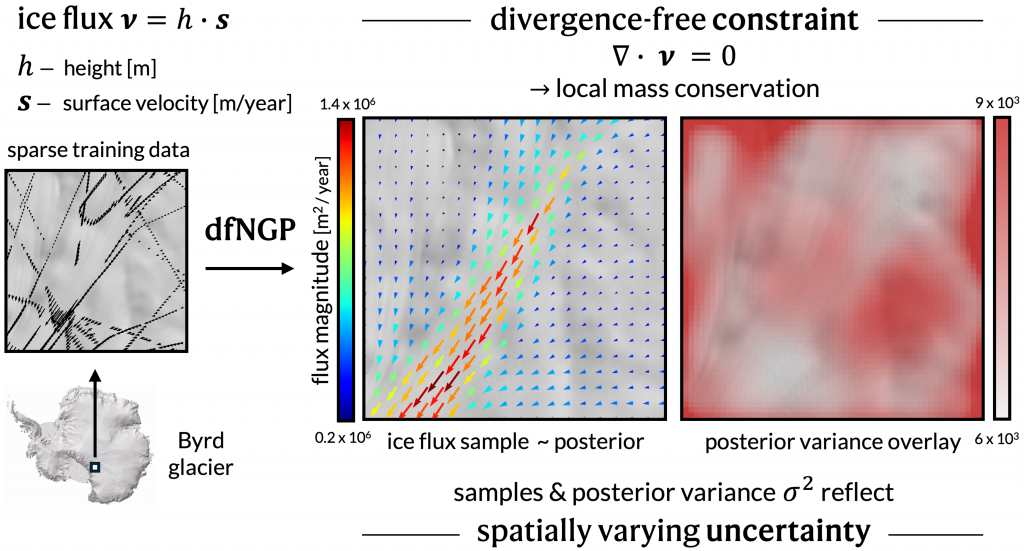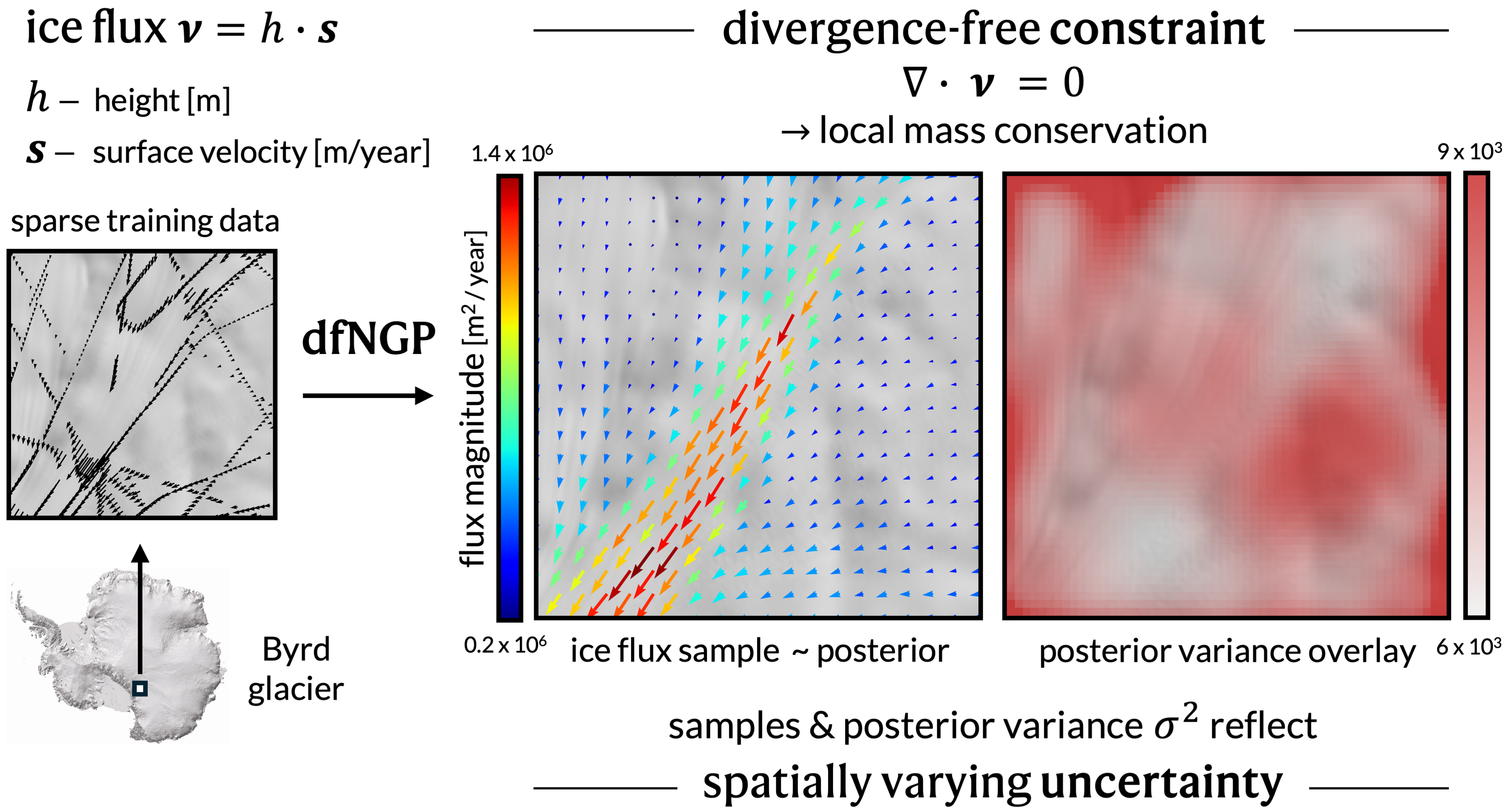We are excited to invite you to the next seminar of the 2025 Geology and Geophysics Seminar Series, featuring Kim Bente, who is a PhD candidate at the School of Computer Science, University of Sydney. Kim will be presenting on “Mass Conservation on Rails: Modelling Ice Flow Vector Fields with Probabilistic Physics-Informed Machine Learning“. In this engaging talk, Kim presents how mass conservation laws can be wired into machine learning to model ice flow with physical realism and quantified uncertainty using divergence-free Neural Gaussian Processes (dfNGPs), a new framework uniting physics, AI, and geoscience.
Date: November 5, 2025
Time: 11:00 a.m. – 12:00 p.m., Sydney Time
Location: Room 449 (Conference Room), Madsen Building (F09), School of Geosciences
or Online (Join via zoom)
We look forward to seeing you there in person or joining us online!
https://uni-sydney.zoom.us/j/84404501899?from=addon
Mass Conservation on Rails: Modelling Ice Flow Vector Fields with Probabilistic Physics-Informed Machine Learning
Abstract
Fundamental physical laws such as mass conservation govern a wide range of environmental processes in hydrology, glaciology, and atmospheric science. Integrating such prior knowledge into models not only promotes physical reliability of model outputs but also improves generalisation performance, particularly in settings where data is sparse & noisy. We address the problem of modelling incompressible fluid flow by imposing a divergence-free constraint on the predicted vector fields to enforce local mass conservation. While widely adopted soft-constrained Physics-Informed Neural Network (PINN) models cannot guarantee adherence to conservation laws, hard-constrained neural networks enforce mass conservation by design.
Nonetheless, none of these neural network models are equipped to quantify uncertainty, which is essential in geoscience applications to reflect knowledge gaps in sparsely surveyed regions, to manage observation noise, and to guide uncertainty-driven data acquisition strategies. To address this shortcoming, we propose divergence-free Neural Gaussian Processes (dfNGPs), a class of hard-constrained Bayesian models that incorporates an expressive divergence-free neural network mean function into a divergence-free Gaussian Process framework. In this seminar I will demonstrate how dfNGPs produce realistic posteriors and strictly enforce mass conservation, while admitting spatially varying uncertainty, on both complex simulated interpolation tasks and real-world data from the Antarctic Ice Sheet (AIS). Our comparison of physics-informed machine learning methods elucidates the strengths and limitations of different model classes and highlights the practical advantages of hard-constrained probabilistic models like dfNGPs, as physically grounded, data-efficient tools for geoscientific modelling and decision making.
Graphical Abstract

![]()

